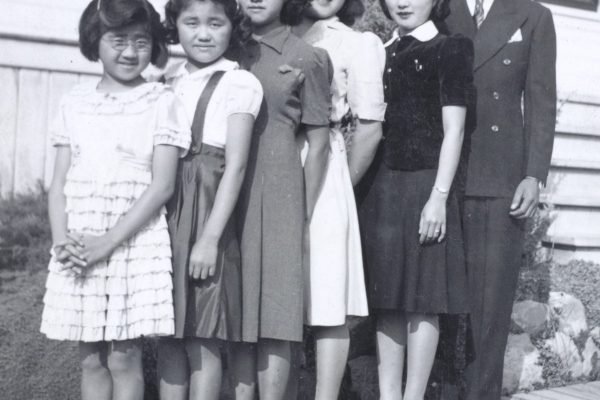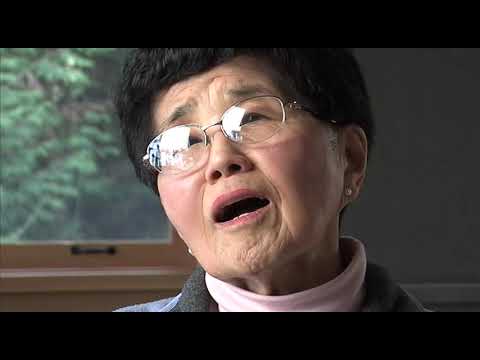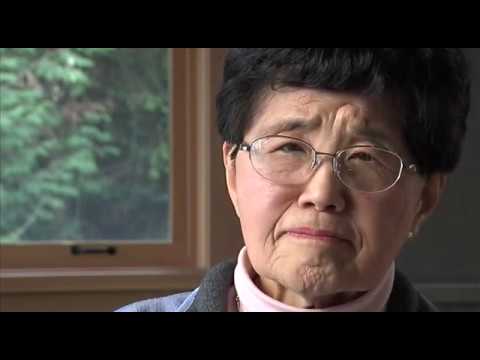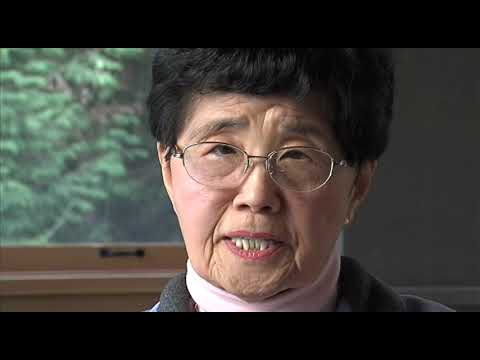Video Interview — December 2006
Manzanar first day, initial reactions – Yae Yoshihara (OH0037)
Transcript
It was dry, dusty. Manzanar was just in the process of being built. So first thing they did was, after we got off, and then they took us to the mess hall, because it was lunchtime. We had lunch and then we were issued, assigned our quarters, which was one room. They told us, “Here’s this canvas ticking. Go fill it with straw. That’s your mattress.” So, that’s what we did. We each had an army cot. Each person was given two army blankets. But the rooms were bare and it had one oil heater and one light bulb dangling from the ceiling, and no tables, no chairs. Then we had to make the best of what was there in the beginning. At that time too, there were other people coming in. There were like from L.A., that area. I remember the next day, we had to all line up for our Typhoid shot because that was, because of the water change, the climate change, everyone had to have their Typhoid shot. The place was different and dust, a lot of dust storms. And scorpions. So we had to be careful because I remember walking into the community bathroom and there was a scorpion right there on the floor.
The facilities and of course our unit, no privacy. There were rows of toilets with no partition, no doors, and then an area for showers. There were about eight showerheads, no curtains, no privacy. You were open to the public. They had, of course, one for the women and the other for the men. This is all in one block. Each block had a similar setup. And then the dining hall: it was, of course cafeteria style and all. But the thing is, when we ate, we ate with friends. And so we didn’t eat with our families. It kind of broke down that family unit, unless the children were small. Like I ate with my friends and so did my sister. She ate with her friends. It did change family life.





